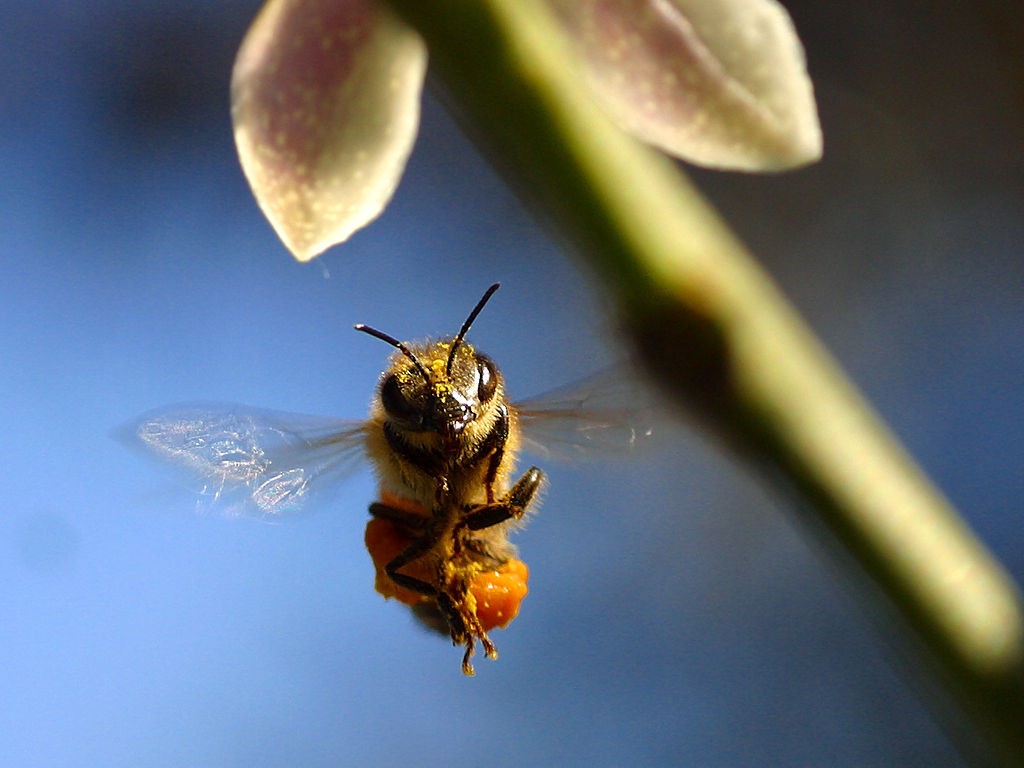One in every three bites of food you eat is directly or indirectly a result of a pollinator like a honey bee. 40% of bee colonies were lost in 2014 and the causes are multiple and complex.

Southern Oregon University is taking great steps to save bees and other pollinators that our eco system relies so heavily on. On Tuesday January 26, the Bee Campus USA subcommittee held a meeting explaining what they are all about and what it means to be a “Bee Campus.” “Imagine you are a honey bee flying around your campus. Would your campus be a food heaven or a food desert?” asks Samantha Penninton-Versek in the introduction to the meeting. “If you look at many college brochures, you see clean cut lawns,” she continues. She explains how important it is to have flowering plants to provide nectar for pollinators.
In 2014, the City of Ashland received the accreditation of being a “Bee City,” meaning that “Ashland commits to supporting bees and other pollinators on both public and private land,” according to the city of Ashland webpage. Jamie Hickner, a member of SOU’s sustainability council noticed that there was no accreditation for University Campuses like there was for cities for being “Bee friendly.” Jamie played a key role in bringing the idea of Bee Campus USA to Phyllis Stiles, executive director of Bee City USA. Today SOU is the first Bee Campus USA certified university. With this title comes seven requirements to maintain the certification:
- “Establish and maintain a Bee Campus USA subcommittee comprised of the landscape director and other staff, administrators, faculty, and students, charged with developing a Camus Pollinator Habitat Plan to include a locally native, pollinator-friendly plant list with regional sources for such plants and a least toxic integrated pest management (IPM) plan.”
- “Host an annual campus event(s) to raise awareness of the importance of pollinators and acknowledge the institution’s certification as a Bee Campus USA institution.”
- “Annually sponsor and track student service-learning projects to enhance pollinator habitats on and off campus.”
- “At least biennially offer a course and/or workshop on Pollinator Ecology and/or Integrated Pest Management and/or Landscaping for Pollinators.”
- “Post signage regarding pollinators to educate the campus and broader community about pollinator-friendly landscaping principles.”
- “Maintain a webpage on the institution’s website to share your Bee Campus USA news and activities.”
- “Annually apply for renewal of the institution’s designation and submit a brief report of the previous year’s Bee Campus USA activities.”
T
he sustainability council at Southern Oregon University, SOU has gone above and beyond on these requirements. During Earth week you can find various bee-related events. They have also paired with SOU’s landscaping to create pollinator gardens that attract native bees. Bee Campus USA at SOU is always looking for volunteers to help out. If you are interested in “beeing” involved contact Jessica Harper at harperj1@sou.edu or Samantha Pennington-Vrsek at pennings1@sou.edu.



